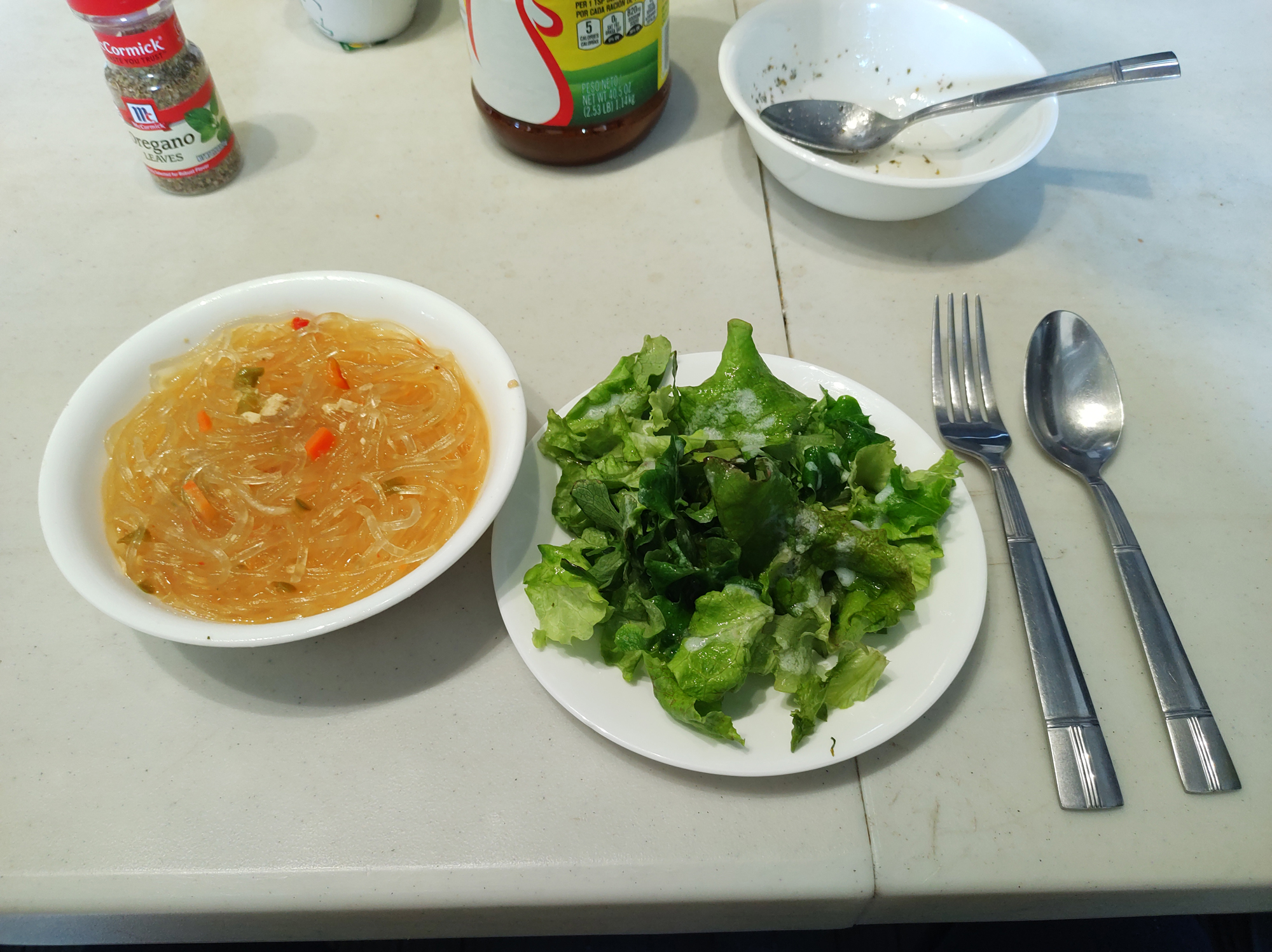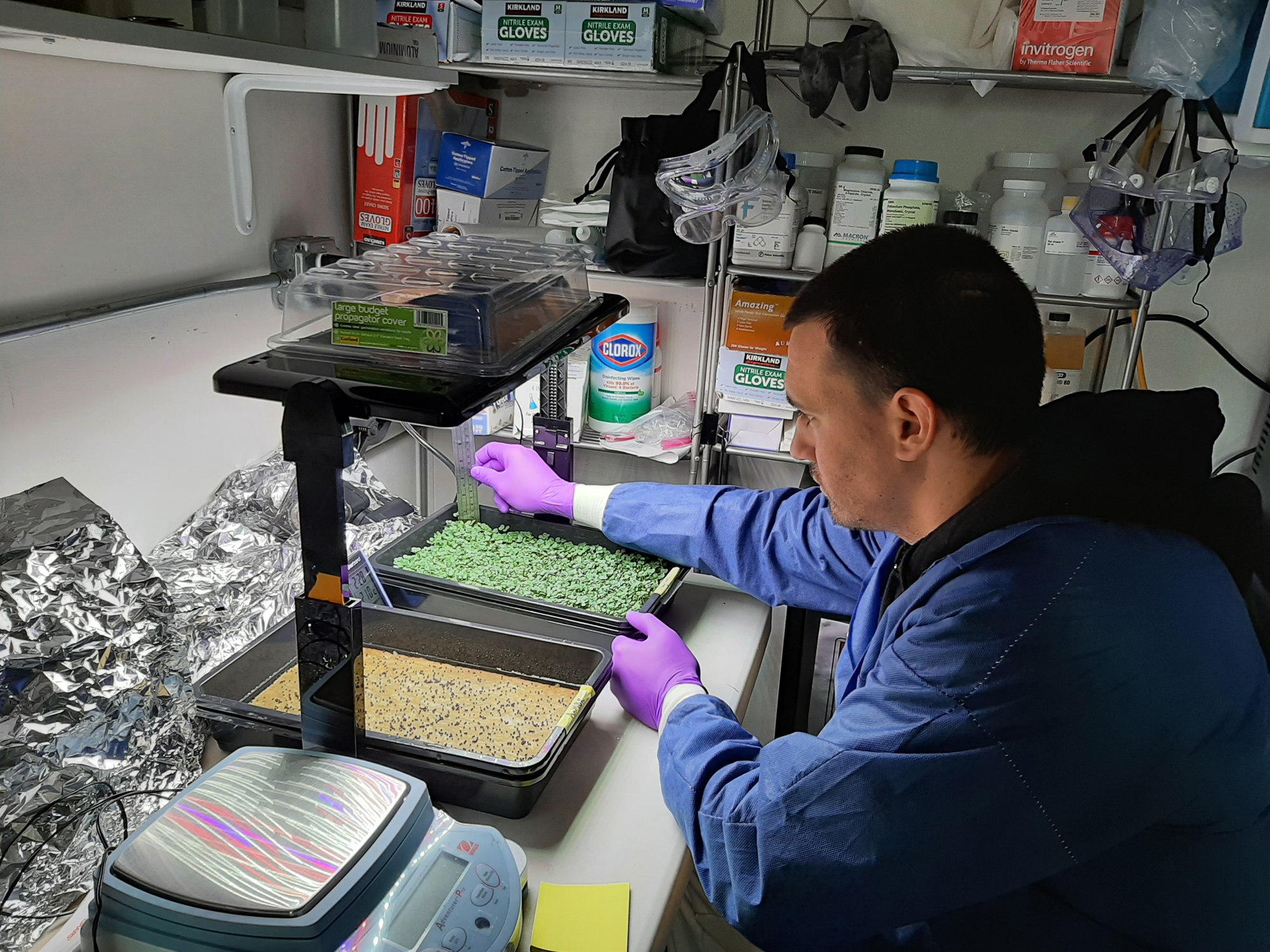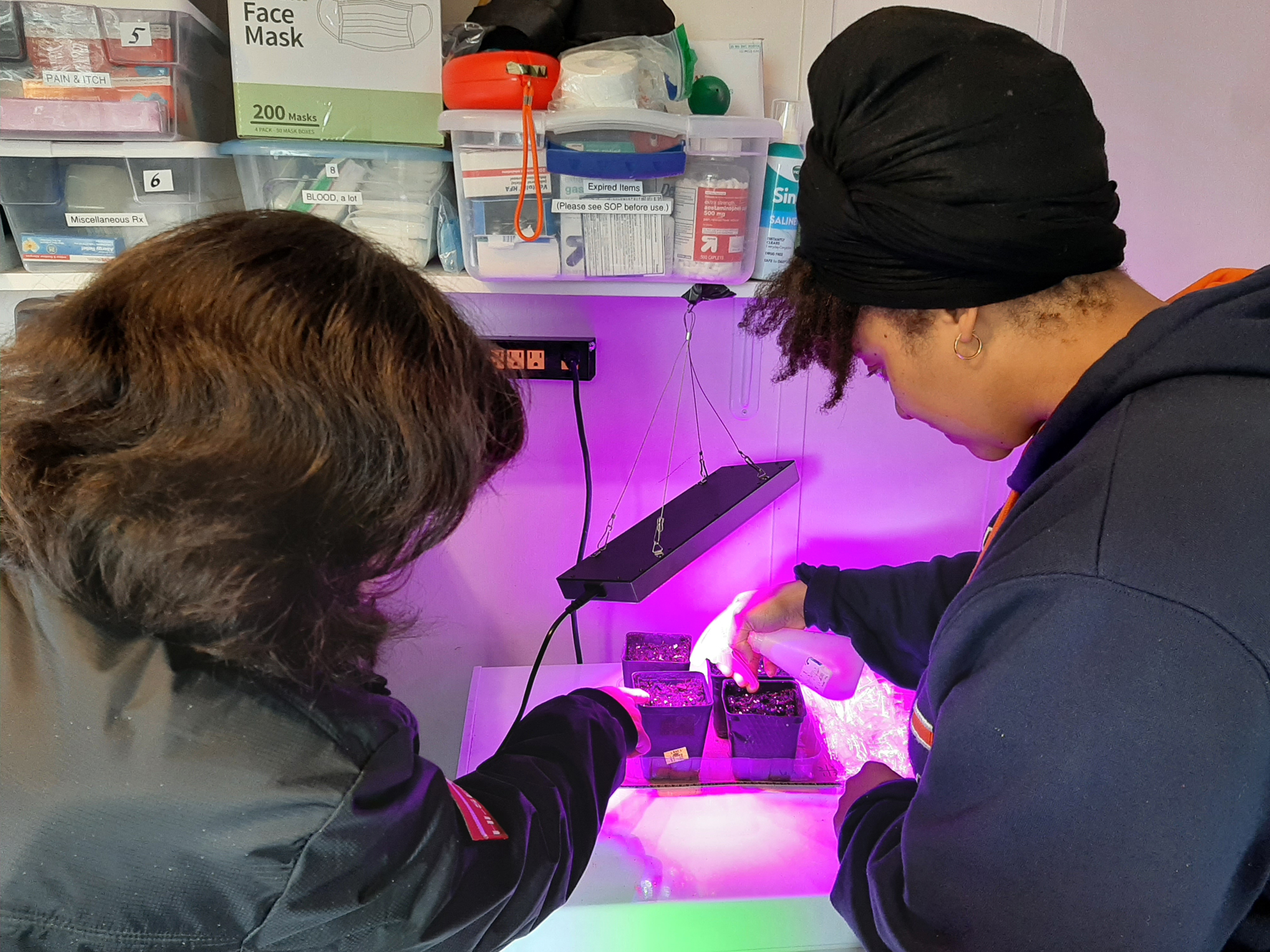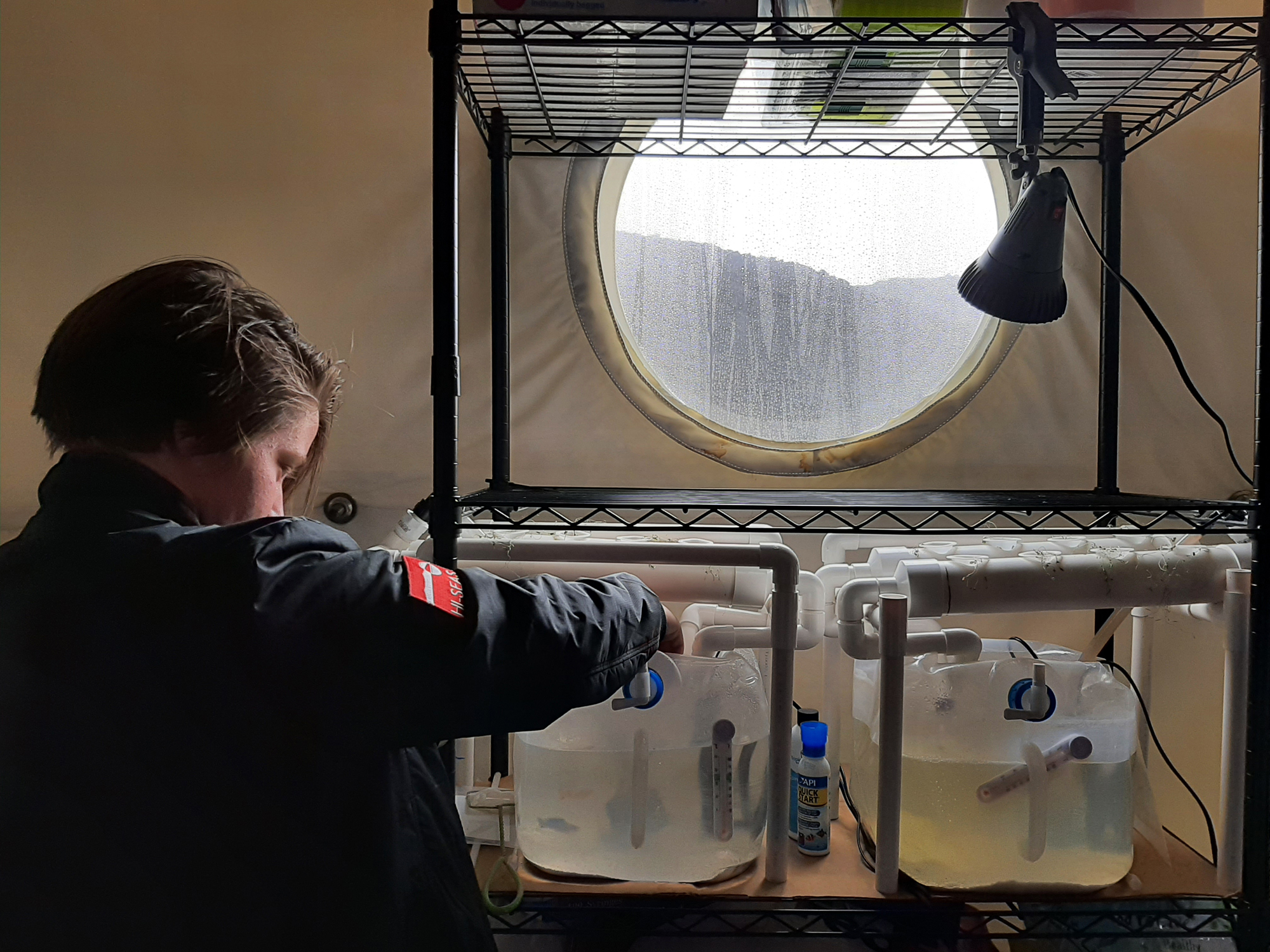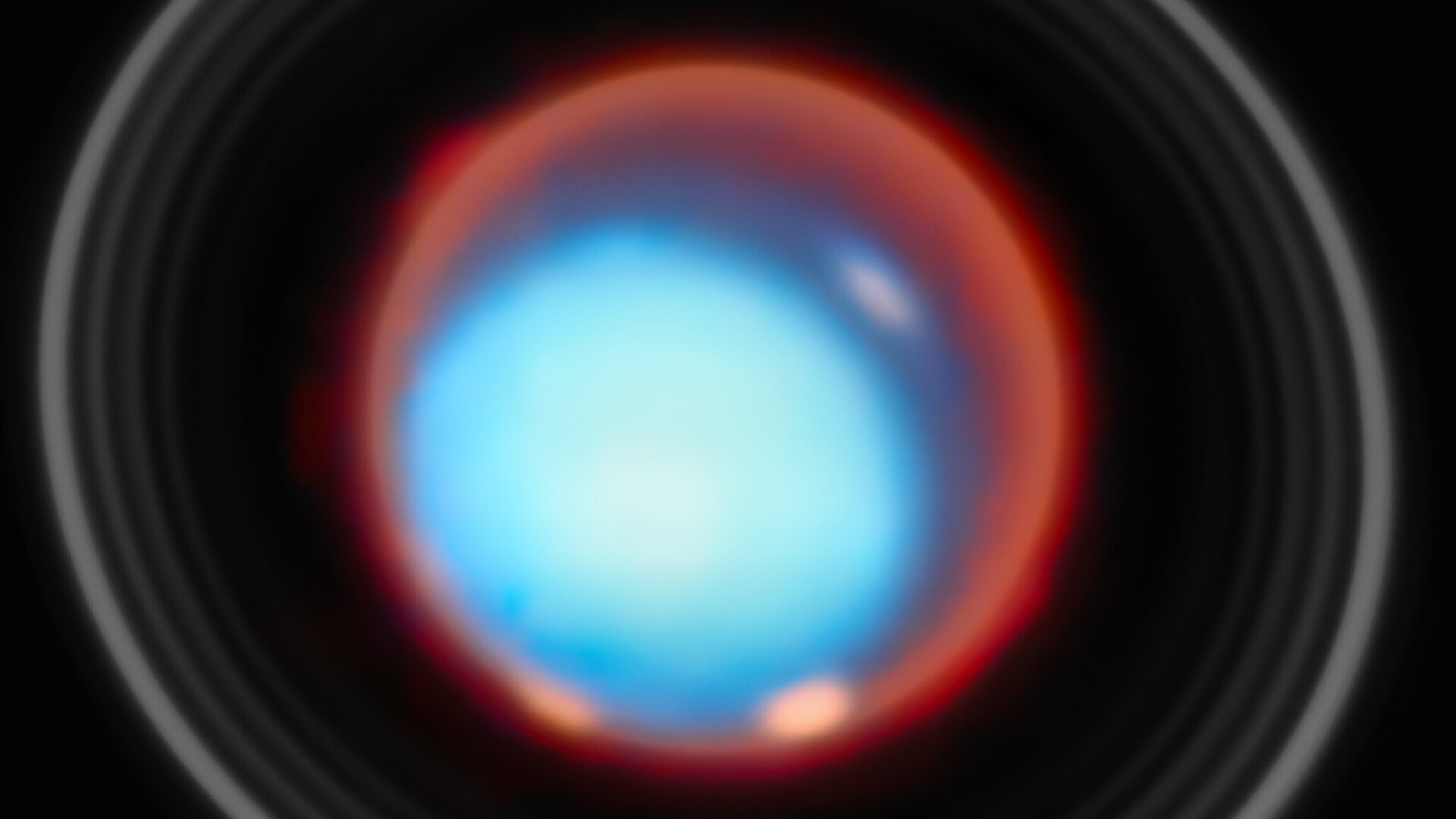Humans are both the weakest and the strongest link in the chain of space missions — Commander's report: lunar day 14
Breaking space news, the latest updates on rocket launches, skywatching events and more!
You are now subscribed
Your newsletter sign-up was successful
Want to add more newsletters?

Delivered daily
Daily Newsletter
Breaking space news, the latest updates on rocket launches, skywatching events and more!

Once a month
Watch This Space
Sign up to our monthly entertainment newsletter to keep up with all our coverage of the latest sci-fi and space movies, tv shows, games and books.

Once a week
Night Sky This Week
Discover this week's must-see night sky events, moon phases, and stunning astrophotos. Sign up for our skywatching newsletter and explore the universe with us!

Twice a month
Strange New Words
Space.com's Sci-Fi Reader's Club. Read a sci-fi short story every month and join a virtual community of fellow science fiction fans!
Dr. Michaela Musilova is the director of Hawaii Space Exploration Analog and Simulation (HI-SEAS) program, which conducts analog missions to the moon and Mars for scientific research at a habitat on the volcano Mauna Loa. Currently, she is in command of the two-week Selene III lunar mission and contributed this report to Space.com's Expert Voices: Op-Ed & Insights.
Commander's report for the Selene III moon mission at HI-SEAS
Lunar day 14 (March 7, 2021)
Once again, I'm dreading the end that's approaching. The end of our analog mission on the moon. Tonight is the last night for the Selene III crew on mission at the HI-SEAS habitat and I can't help myself from feeling emotional. More goodbyes, more heartbreaks and then I have another lunar mission coming up in less than a week. This constant whiplash of feelings, both happy and sad, takes its toll on me. I sometimes wonder if what doesn't kill you does actually make you stronger?
While torn in many directions by my emotions, I am still trying to keep it together in front of my crewmates. I'm sure that they're going through something similar. On one hand, they can't wait to get back to their loved ones, fresh food, showers and other commodities that many people treasure back on Earth. On the other hand, we all bonded so well together that we are all feeling sad about our time together coming to an end.
Our mission was both challenging and a lot of fun. The Selene III crew did an extraordinary job of powering through literally dark days of no sun peeking through dust storms on the moon (aka heavy rainstorms in Hawaii). Even in the gloomiest moments, we were able to cheer each other up and find a positive side to our situation. Not a single day went by without laughter shared by the whole crew. It's those times that I will miss the most, especially as I know they will never happen again. Even if we'll meet again sometime in the future, it will not be the same as facing extreme challenges and experiencing wonderful bonding moments on the mission.
Related: Sunshine and 'moonwalks' heal the Selene III crew's dying optimism
Breaking space news, the latest updates on rocket launches, skywatching events and more!
My downward spiral into sad thoughts started last night after we watched the movie "The Secret Life of Walter Mitty." It was part of a movie night we organized in honor of Science Communication Officer Brooke Edwards' birthday. The crew cooked and baked all sorts of tasty treats for this lovely occasion. Then, we gathered together with hot chocolate, covered in blankets, to enjoy the movie despite very cold temperatures in the habitat (55 degrees Fahrenheit, or 13 degrees Celsius).
The movie hit home with all of us. Some of us were inspired to try to get more out of life. Others realized that they might be taking some things in their life for granted. For me, I was reminded of various great adventures that I experienced in life and how I shouldn't give up on some thrilling quests that I desire to go on. Many times the best parts of adventures are the amazing people that we meet along the way. Now, I'm about to say goodbye to a whole crew of such people.
Despite my current mood and feelings, I immersed myself in the rest of tonight's activities. I enjoyed every last moment I could with my Selene III space family. This included playing games like "What Do You Meme" and "Cards Against Humanity," as well as finalizing the Easter egg contents that we will be leaving behind for the Selene IV crew. It is only appropriate that our mission will end on a funny note, since that is how it started.
Today, my crewmembers also wrapped up their research projects. Bioscience Officer Jason Fischer shared with us the microgreens that he grew throughout the mission. The microgreens only grew on an industry-standard hydroponic nutrient solution. Attempting to grow microgreens on simulated wastewater processed through a bioreactor did not work well. Conducting this feasibility study was thus very important for Jason. In the future, he is planning to modify the simulated wastewater by either diluting it or removing its high salt concentrations to support plant growth.
Brooke's biggest takeaway from the mission was that she felt like the experience changed her as a person. She learned that having to rely on limited resources to survive in space makes one more conscious of the value of having access to natural resources. Brooke also found that a great relationship between the crew is vital to the success of the mission and helps to keep stress at a minimum.
Crew Operations Officer Eboni Brown came to a similar conclusion. Analyses of her research data showed that without a proper support system, chronic stress removes the true characteristics of an individual. This prevents collaborations and emotional connections, which affects lasting relationships with other crewmembers.
Brooke and Eboni also continued with growing spinach using human hair as fertilizer, as part of the Mission to Mars student competition that I'm running. So far, the control and spinach fertilized with a higher concentration of hair fertilizer have sprouted. Brooke and Eboni have prepared instructions for how to take care of the experiment to the Selene IV crew, which will be collecting that metaphorical "torch" and passing it to future crews.
The bad dust storms affected Crew Engineer Oscar Ojeda's research project. He wasn't able to test out as many methodologies related to doing moonwalks and the local geology as he hoped. However, the data he was able to collect underlined the importance of how human factors, such as within-crew relationships, can influence the outcomes of both analog and space missions. Oscar concluded that even with all of the technological advancements that are coming into play, the most important and critical element of future exploratory missions will always be something human.
Our Crew Bioengineer Zoe Maxwell spent most of the mission trying to troubleshoot her experiment on perchlorate and nitrate reduction using bacteria and aquaponics. Some of the problems she encountered were related to the plastic tanks that she was using for the aquaponics part of her project. They may have affected how the bacteria reacted in the system. Most of the fish in the tanks survived and Zoe gathered feedback that she'll be implementing when developing her project further in collaboration with Berkeley.
Even I was not able to perform my research project, focused on lava cave extreme lifeforms (extremophiles), because of the dust storms. This is an ongoing project I am working on aiming to understand what kinds of extremophiles live in these cave systems and how they survive there, which is in collaboration with NASA Goddard Space Flight Center. Instead, I focused on taking care of my crew and performing outreach projects during this mission.
We were all under extra stress when the weather locked us in the habitat for days on end. Those were the times when personal projects and problems needed to be set aside to work together as a team and more importantly, as a family. I enjoyed every one of those moments and they are what I will be taking away from this mission. As the crew figured out themselves, the human aspect of space missions can be both the weakest and the strongest link in the chain.
Commander Musilova signing off listening to "Stay Alive" by José González from the movie "The Secret Life of Walter Mitty." My eyes are filling with tears of both joy and sorrow. I will miss my great crew, but fond memories of our time together will keep pushing me forward. Selene IV mission here I come!
Follow Michaela Musilova on Twitter @astro_Michaela. Follow us on Twitter @Spacedotcom and on Facebook.
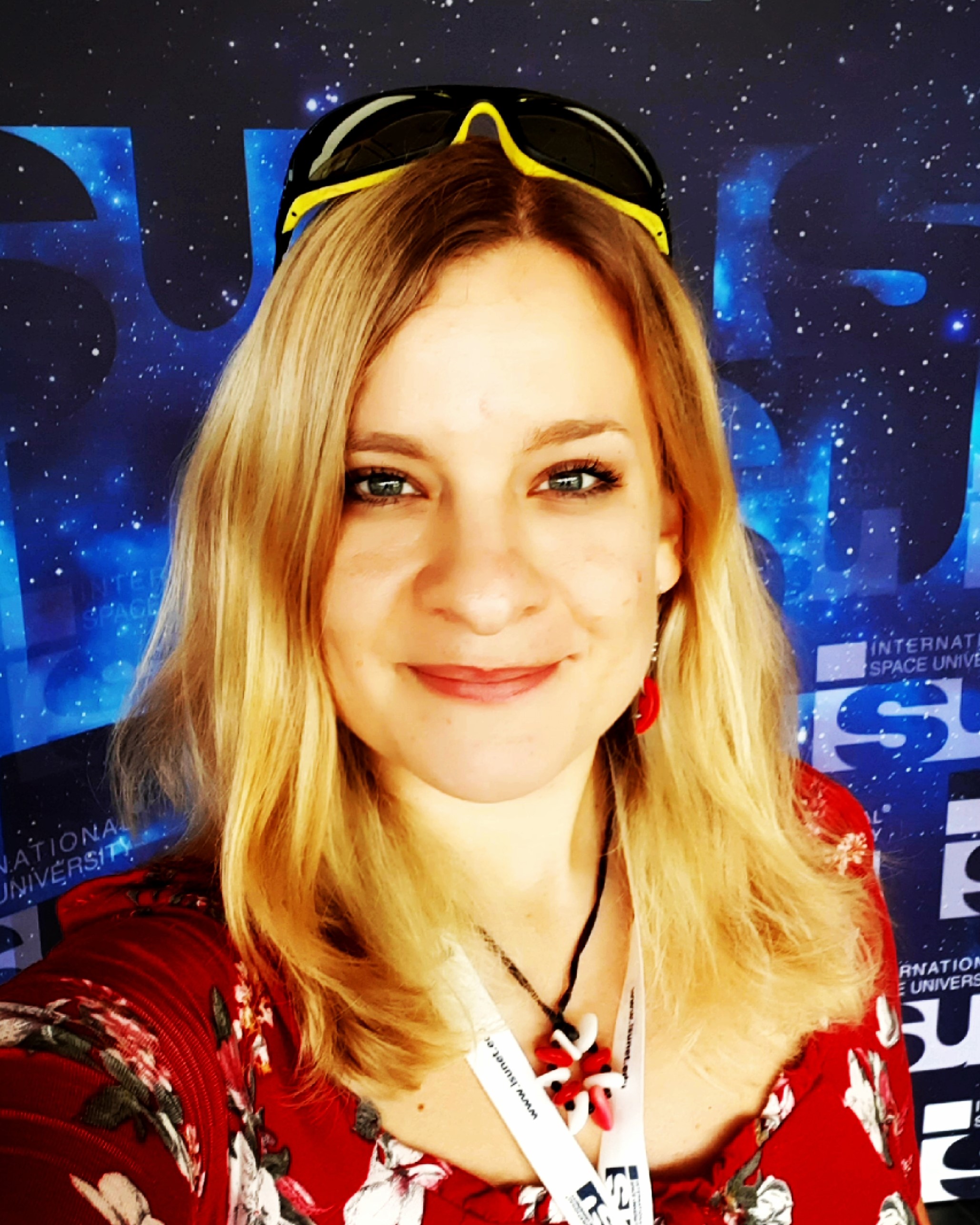
Dr. Michaela Musilova is an astrobiologist with a focus on life in extreme environments. She has a PhD degree from the University of Bristol and is a graduate from the International Space University's (ISU) Space Studies Program. Michaela's space research experience includes working at the NASA Jet Propulsion Laboratory, University of London Observatory, Canada-France-Hawaii Telescope, on NASA's and the U.K. Space Agency's MoonLite project, being an analogue astronaut and Commander of numerous simulated missions to the moon and Mars at the HI-SEAS station in Hawaii, and at the Mars Desert Research Station in Utah. Michaela is currently the Director of HI-SEAS, as part of the International MoonBase Alliance. She is also a visiting Professor at the Slovak University of Technology, Vice-Chair of the Slovak Organisation for Space Activities, Adjunct Faculty at ISU and the Senior Research Adviser for Mission Control Space Services Inc.
She has received numerous prizes and grants, including the Emerging Space Leaders Grant from the International Astronautical Federation (2016) and the Women in Aerospace – Europe Young Professional Award (2016), and she was selected as one of the most promising 30 under 30 by Forbes Slovakia (2015). Michaela is also actively involved in the Duke of Edinburgh's International Award, as a patron of the program in Slovakia and an Emerging Leader Representative for Europe, Mediterranean and Arab states. Furthermore, she enjoys participating in STEAM outreach activities from teaching at schools, giving public presentations, to working with the media and more, as well as encouraging people to pursue their dreams. For instance, she is an Advisory Board Member of the STEM Punks immersive programs for students and teachers.

